
Wedding limo passing the Kremlin; Photo via Wikimedia Commons
The Russian position in the Euro-Atlantic geopolitical region was supposed to turn towards careful cooperation by two major doctrinal shifts which have occurred recently. Obama’s policy of restarting the US-Russian relations (including signing of the START treaty, which is clearly a Kremlin win), and, opening the door to the East by inviting the Russian side to the currently-being-developed missile defense system of NATO, should have caused a contemporary form of détente of post-bipolar aggrieving ex-superpower. Since reality is never wholly defined by proclamations, it became obvious that 2011 marked a deterioration of Russian trust towards Western structures.
When trying to persuade somebody to significantly change his position, one must understand the internal world of his counterpart. A new ruler, Vladimir Putin, has involuntarily seen number of voting slips devoted to his party fall to 49.3% from 64.3% in five years. Losing the constitutional majority in the State Duma might seem like a game-changing deal, moreover, after the country has seen a near uprising against state manipulation during parliamentary elections – a first 50 000 demonstration since the exitus of Soviet Union. Authoritative democracy, as Putin recalls domestic imperial history lectures, looks reportedly to satisfy the majority of Russian population. To be strong is not an asset but a must in the land of Siberian bears, so it is considered an imperative for the ruler of Kremlin to act with power. Or to appear (again) significant, at least, in the eyes of his followers and once in four years – voters.
Since the only instruments of superpower status left in the land of vodka are nuclear weapons and gas-exporting pipes, it comes as no surprise that the official doctrine of Russian military forces (signed by president Medvedev in February 2010 even before The Lisbon Summit of NATO which took part later that Fall) considers NATO as an enemy.
The Bear is Afraid
To find a reason why Moscow is threatening Poland, and Europe in a broader sense, is as simple as keeping an AK-47 Kalashnikov working – Putin feels afraid, and secondarily, nostalgic of good old powerful times. Imagine sitting at his office and watching NATO expansion to Baltic states, Ukraine turning into a new version of Yugoslavia with inbetweener’s approach called Titoism from the West, China demanding space on the Eastern side, emancipating Turkey with strong NATO background such as American presence in Middle to Far East from the Southern side of its borders. These facts generate a simple feeling. The country of world-size poets is being besieged.
Security dilemma is what we call an outcoming action academically, in the real world the military expenditures have nearly doubled (from 967 billion rubles in 2006 to 1782 billion in 2010) in four years and caused the diplomatic offensive. As historical discourse – preliminary bombardment as diplomatic tactics have been used by Kremlin rulers for ages. The only two words Russians geostrategically truly understand are power and strength.
Why to Wake (Him) Up
Here comes the cutting argument which could lead Russia to the real cooperation with NATO (and in overall view- the EU) and mitigate the extended discrepancy between diplomatic paperwork and the human world.
The Russian economy is poor, addicted to gas and has not made not a single innovation ever. It is about time to make Russian top-notch representatives to wake up and admit it. Recalling times of Ronald Reagan who used the SDI buildup to crash the Soviet Union without firing a shot and therefore won militarily-threatening Cold War with economic means can be nowadays be translated as an urgent call to action. If Moscow stops taking NATO as an enemy, it can decrease its military expenses and rebuild its domestic structure – a feat for which the country has been longing for since the times of Peter the Great.
As the amount of remaining commodities under Russian freezing soil will undoubtedly decrease, the state will be forced by energy-security and demographic trends to manage its significant relation towards its neighbouring superpower – emerging China. Since the American post-WW II two-major-conflict doctrine has recently been turned to the less expensive shift towards Asia and Pacific area, a close American surveillance of the Chinese rise seems to be inevitable. The situation will most likely not turn into armed conflict, denominations like an untold race or economic contest hit the nail on the head. Kremlin will not play a key global role, in any measure except of nuclear arsenal, so it can rather easily get shoulder to shoulder with Europe as being closer to continental cultural sphere then in comparison with Asia.
Recalling the triangle policy of Henry Kissinger will not be enough for the Russian elites to wake up to the real world, but the longer leaders in Moscow live in their dreams and rich history the more powerful decay of the once internationally strong nation.

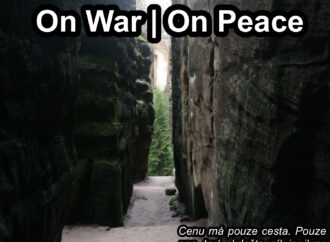
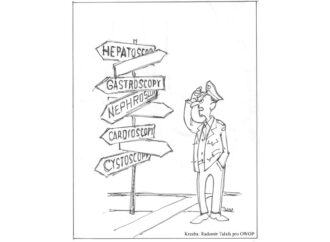
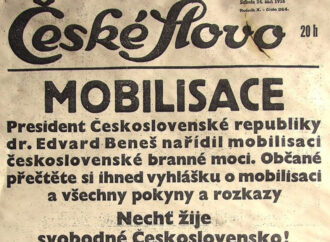


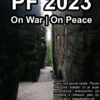
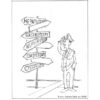
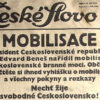

Leave a Comment
Your email address will not be published. Required fields are marked with *